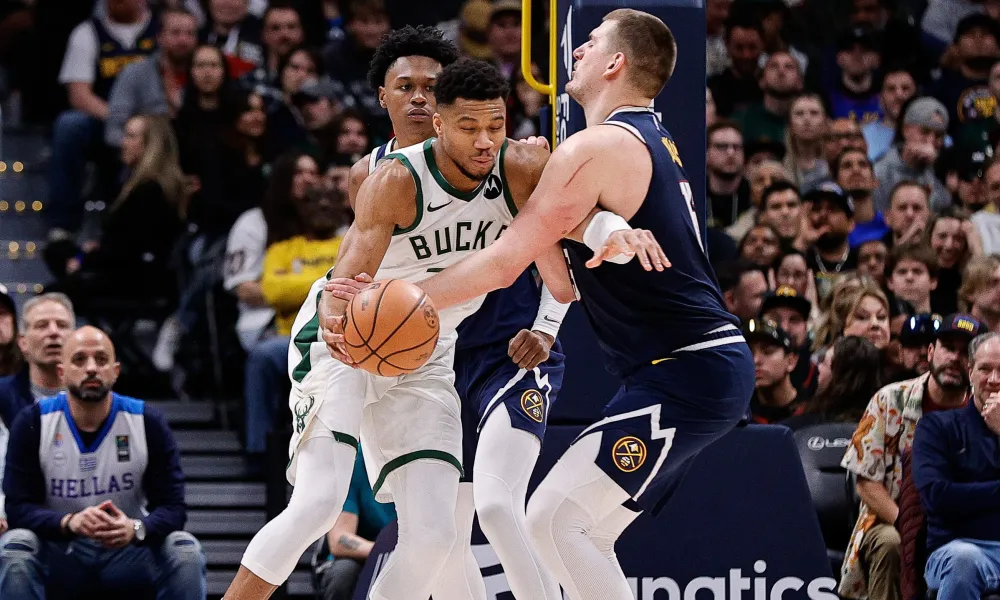
The NBA Finals represent the pinnacle of basketball competition, where the best teams and players battle for ultimate glory. Over the years, star players have consistently demonstrated their ability to shape outcomes, elevate their teams, and leave indelible marks on the sport’s history. Analyzing the Impact of Star Players in Recent NBA Finals reveals how individual brilliance and leadership have defined championship success, while also highlighting the importance of team dynamics.
The Role of Superstars in Championship Success
Star players are often the focal point of their teams during the NBA Finals. Their performances not only influence game results but also set the tone for their teammates. In recent years, players like LeBron James, Giannis Antetokounmpo, and Stephen Curry have showcased their ability to rise to the occasion. For example, Giannis’ historic 50-point performance in Game 6 of the 2021 Finals against the Phoenix Suns was instrumental in securing Milwaukee’s first championship in 50 years. His dominance under pressure exemplified how a superstar can single-handedly shift momentum.
Similarly, LeBron James has delivered unforgettable performances across multiple Finals appearances. His Game 6 heroics in the 2016 Finals against the Golden State Warriors—where he recorded 41 points, 11 assists, and 8 rebounds—were pivotal in forcing a decisive Game 7 that ultimately led to Cleveland’s first-ever NBA title. These moments underscore how star players thrive under intense scrutiny, leveraging their skills and mental toughness to inspire their teams.
Legacy-Defining Moments
The NBA Finals provide a unique stage for players to cement their legacies. A single standout performance can redefine public perception and elevate a player’s career trajectory. For instance, Jimmy Butler’s incredible efforts during the 2020 Finals with the Miami Heat solidified his reputation as one of the league’s premier playoff performers. In Game 3 against the Los Angeles Lakers, Butler posted a triple-double with 40 points, 13 assists, and 11 rebounds, keeping Miami alive in a series where they were heavily outmatched. His ability to lead by example under challenging circumstances highlighted his leadership and competitive spirit.
Kevin Durant’s clutch shooting in Game 3 of the 2018 Finals against Cleveland also stands out as a legacy-defining moment. Durant scored 43 points and hit a dagger three-pointer late in the game to seal victory for Golden State. Performances like these not only contribute to championship wins but also leave lasting impressions on fans and analysts alike.
Also Read The Best Shooting Guards of All Time: A Legacy of Excellence
Statistical Dominance vs. Intangibles
While statistics often capture the brilliance of star players such as scoring averages and shooting efficiency intangibles like leadership and mental toughness are equally critical. Players like LeBron James exemplify these qualities by rallying teammates during pivotal moments. His ability to maintain composure under pressure and deliver clutch performances has been a hallmark of his career.
Giannis Antetokounmpo’s resilience during free throws in the 2021 Finals is another example of overcoming adversity. Despite criticism about his foul shooting throughout the postseason, Giannis went an astounding 17-for-19 from the line in Game 6. This display of mental fortitude not only silenced doubters but also underscored his growth as a leader.
The Balance Between Individual Brilliance and Team Cohesion
While star players often steal the spotlight, team dynamics remain crucial to championship success. Even superstars rely on role players to complement their efforts. For instance, Kyrie Irving’s clutch shot in Game 7 of the 2016 Finals was instrumental in securing Cleveland’s victory alongside LeBron James. Similarly, Stephen Curry’s performances in recent Finals have been bolstered by contributions from teammates like Klay Thompson and Draymond Green.
The importance of team chemistry was evident during Miami’s Big Three era with LeBron James, Dwyane Wade, and Chris Bosh. Despite initial struggles with cohesion, their eventual synergy led to consecutive championships. These examples highlight how even the most talented stars need strong support systems to maximize their impact.
Emerging Stars Poised for Greatness
As established superstars continue to dominate headlines, emerging talents like Luka Doncic and Jayson Tatum are poised to leave significant marks on future NBA Finals. Both players have demonstrated exceptional skill and maturity during playoff runs, suggesting they could become cornerstone figures for their respective franchises.
Recent trends indicate that versatile forwards often dominate Finals MVP selections due to their ability to influence multiple facets of the game. Doncic’s playmaking and Tatum’s scoring prowess make them prime candidates for future stardom on basketball’s biggest stage.
The Bigger Picture: Stardom Meets Legacy
Ultimately, analyzing star player performances in recent NBA Finals reveals a broader narrative about legacy building. Iconic moments, whether it’s Giannis’ clutch free throws or Butler’s triple-doubles transcend statistics and resonate with fans for years to come. These performances shape not only individual careers but also team histories.
While superstars drive championship success, they are part of larger ecosystems that include role players, coaching strategies, and fan engagement. The interplay between individual brilliance and collective effort defines what makes NBA Finals performances truly special.
In conclusion, Analyzing the Impact of Star Players in Recent NBA Finals underscores how superstars elevate their teams through skill, leadership, and resilience. From LeBron James’ historic comebacks to Giannis Antetokounmpo’s clutch dominance, these players exemplify greatness under pressure while inspiring teammates and fans alike. As emerging stars prepare to take center stage in future Finals matchups, one thing remains clear: star power will continue to be a defining factor in basketball’s ultimate competition.




